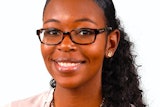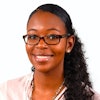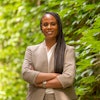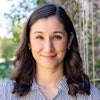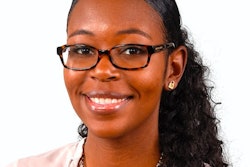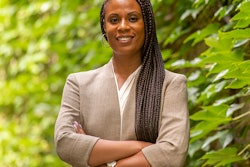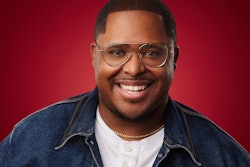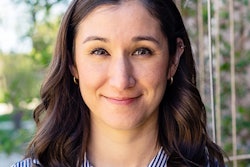Title: Assistant Professor, School for the Future of Innovation in Society, Arizona State University; Futurist, Latinx Pacific Archive; Co-Director, Situated Critical Race and Media (SCRAM).
Tenured: No
Age: 40
Education: B.A., public & private sector organizations, Brown University; M.A., ethnic studies, San Francisco State University; M.A., communication, University of Southern California; and Ph.D., communication, University of Southern California
Career mentors: Dr. Rudy P. Guevarra, Jr., Arizona State University; Dr. Lekelia “Kiki” Jenkins, Arizona State University; Dr. Timothy K. Eatman, Rutgers University-Newark; Dr. George J. Sánchez, University of Southern California; and Marinah Valenzuela Farrell, Community Based Health Worker and Midwife
Words of wisdom/advice for new faculty members: “Never forget why you do what you do. Stay steadfast in your dedication to justice.”
As the technological world continues to rapidly change and progress, it can leave users in underrepresented communities behind. It is the work of futurists like those at Arizona State University (ASU) to ensure that technology does not leave people behind, but that it gives their lives, cultures, and technological needs a seat at the table.
Dr. Alexandrina Agloro is an ASU futurist. She is assistant professor of science, technology, and innovation in the borderlands at the School for the Future of Innovation in Society, a senior global futures scientist at the Julie Ann Wrigley Global Futures Laboratory, and affiliate faculty member with The Design School at Herberger Institute for Design and the Arts at ASU. These are just a few of her titles and projects.
Agloro jokes that few of her friends know exactly what she does on a day-to-day basis because she works in so many fields, ranging from the creation of a video game that will preserve the cultural experiences and histories of Latinx immigrants in the Pacific islands to working with reproductive justice and technology for indigenous midwives.
“Each of my projects has an overarching umbrella: community, technology, justice, equity, and media,” says Agloro. “I call myself a futurist, because I’m not just thinking about how we reinterpret information to be used now and in the future, but what do we need to be thinking about in the future? What can we anticipate?”
Agloro says her goal is to impart skills that allow communities to be their own advocates in a world not designed to hear them. Enabling critical research and technological access can be the key to sovereignty for communities of color. Agloro’s video game project based on Hawai’ian Latinx immigrant experiences could, once it’s released, help bring financial resources to the community if it is sold through a major gaming platform like Nintendo Switch.
“I want this to be a learning experience, not just a playable game,” says Agloro, adding that she makes sure those who shared oral histories with her have a real say in how those stories are eventually experienced by the user.
Dr. Eusebio Scornavacca, professor and interim director of the School for the Future of Innovation in Society at ASU, says Agloro’s ability to connect with members of the communities she researches is remarkable.
“She’s really at the forefront of actually thinking about community engagement methodologies. She really focuses on communities of color in different parts of the world,” says Scornavacca, adding that Agloro’s research is incredibly actionable. “Her scholarship translates into policy and engagement.”
Serving traditionally underserved communities requires humility and patience, according to Agloro. In studying reproductive justice, she received the Birthworkers of Color full spectrum doula training in 2019, which allowed her to become part of the doula community and learn about their specific needs.
“I didn’t come in as a scholar. I took the training like everyone else without announcing myself. And a couple of months after they knew who I was, we started talking about what it would be like to fill the gaps in the knowledge that they see,” says Agloro. “We know that doulas have better birth outcomes, but we don’t talk about culturally relevant doulas who support and hear cultures and know heritage traditions. It would be my joy to train birth workers to be researchers, to collect their own data.”
Agloro says she sees herself as a true scholar, not an activist, despite those leanings. “We talk about building a better world, but I actually mean it,” says Agloro. “I want to build a better world.”

